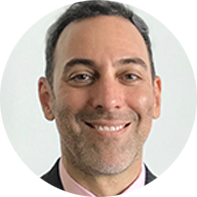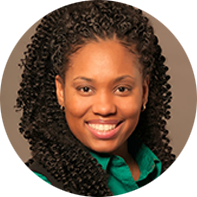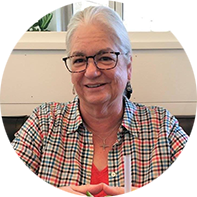
Charter Oak State College has an online bachelor's degree in Psychology, the science of behavior. It covers the behavior of humans, normal and abnormal, and across the life span.
The field is concerned with the development of principles of behavior and the application of those principles to individuals, society, and the institutions of government, business, and mental health.
Our Bachelor of Science in Psychology degree program requires a minimum of 39 credits in the major: 4 core courses (12 credits), 3 elective courses (9 credits), 5 concentration courses (15 credits), and the Capstone course (3 credits).
See the full requirements for our Psychology major in our Official Catalog.
PSY 101: Psychology
3 creditsPSY 216: Statistics in Psychology
3 creditsPSY 490: History & Systems in Psychology
3 creditsPSY 410: Research Methods for Behavioral Sciences
3 creditsChoose two of these courses:
3 credits
PSY 320: Cognitive Psychology
PSY 450: Introduction to Neuropsychology
PSY 322: Learning and Memory
PSY 248: Adolescent PsychologyChoose one of these courses:
3 credits
PSY 321: Social Psychology
PSY 334: Psychology of Personality
PSY 336: Abnormal PsychologyPSY 495: Psychology Major Capstone
3 credits
Students enrolled in the Psychology major will earn 15 of their credits in one of these four concentrations:
Life Span - courses for this concentration may include:
PSY 236: Life Span Development
PSY 301: Psychology of Play
PSY 319: Psychology of Gender
PSY 335: Psychology of the Exceptional ChildSocial/Behavioral - courses for this concentration may include:
PSY 236: Life Span Development
PSY 301: Psychology of Play
PSY 319: Psychology of Gender
PSY 333: Social Psychology & Deviance
PSY 454: Psychology of AddictionCognition & Learning - courses for this concentration may include:
PSY 236: Life Span Development
PSY 301: Psychology of Play
PSY 335: Psychology of the Exceptional Child
PSY 450: NeuropsychologyGeneral Psychology - this concentration will be developed with your Academic Advisor

Ashley McCollum
MS
Ashley McCollum is an educator, author, course developer, business owner, pediatric sleep expert, business trainer, strategist, and life-long learner who is committed to improving the lives and opportunities of the everyone around her. She has taught Psychology for well over a decade at colleges throughout the East coast and has been with COSC since 2015. Ashley received her Bachelor of Science from Florida State University in Psychology + English and has her Master of Science in Psychology from Georgia Southern University. She loves to travel with her family both stateside and abroad.

Dana Wilkie
B.A., M.A., Ed.D.
Dr. Wilkie has taught Social Psychology at Charter Oak State College and various colleges and universities as an adjunct faculty member while holding administrative positions throughout her 25-year career within the field of higher education. Her most recent research project was entitled "The impact of the Virginia Polytechnic University shootings effect on Connecticut high school seniors, Class of 2008, college choice and enrollment." In 2012, she presented at the Connecticut School Counselor's Association annual conference demonstrating the outcomes of this impact study. Using a social psychology approach to this research, the premise for the findings was to predict attitudes of Connecticut high school students and their perception of campus violence. In response to school violence, she is an active volunteer with "The Sandy Hook Promise" to ensure mental health awareness in relation to aggression is recognized early in life to prevent future violent acts.

Gary Giss
MA
Gary Giss has been teaching at the university level since the start of 2004. He has taught at the undergraduate and graduate levels, teaching in the areas of psychology, management, and business, and has taught in the U.S.A., China, and Vietnam. Gary spends much of his time abroad, as his full-time work is based in Southeast and East Asia. His research interests are in the area of cross-cultural studies, and his latest publication (June, 2020) was titled, "Exploring regional differences in cultural values involved in creating Vietnam's emerging economy". Empirical Economics Review, 10(2), 111-149. In addition to being a university associate professor and university dean, Gary spent several years as a practicing psychotherapist and Clinical Director, providing psychotherapy to individuals, couples, families, and providing group therapy (serving patients with such issues as serious mental illness, substance abuse, domestic violence, anger management, and much more, working with court mandated clients, private pay clients, in inner city clinics, psychiatric hospitals, and in the Department of Juvenile Corrections). Gary also has worked in the helping fields for various levels of government, at the municipal, county, and state level. One of his life passions is global travel, and he has been to every inhabited continent, and 50 countries so far. Mr. Giss has been teaching for COSC since February 2016.

Melissa-Sue John
Ph.D.
Melissa-Sue John, Ph.D. is a social psychologist by training and is currently employed as a faculty member at Charter Oak State College, the Director of Education and Training at Thought Partner Solutions, a Project Coordinator at Greater Hartford Harm Reduction Coalition, and is the CEO of Lauren Simone Publishing House. Dr. John earned her master’s and doctoral degrees from the University of Connecticut, Storrs and her bachelor’s degree from Hunter College, City University of NY. Dr. John is passionate about her writing, teaching, scholarship, and mentorship. Dr. John teaches Introduction to Psychology, Developmental Psychology, Social Psychology, and Psychology of Addiction. Her research investigates broadly the effects of being categorized (e.g., ethnic minority, female, immigrant) on general attitudes (e.g., stereotyping) and behavior (e.g., hiring, promotion, voting, sentencing). Specifically, Dr. John has examined the impact of culture on learning with pedagogical agents; the impact of intergroup frames on attitudes towards immigrants; intersectionality and helping behavior; understanding bias towards Blacks and Latinos; and is involved in the Many Labs replication project. Dr. John has a number of scholarly publications and awards including a grant from the Institution of Educational Sciences entitled Seeds of STEM: The Development of an innovative early childhood stem curriculum which is a project in collaboration with the Worcester Head Start Program which focuses on engineering curriculum for pre-K classrooms. Most recently, she has added actor, author, and publisher to her CV. She has been featured in Hallmark's Christmas move, "Broadcasting Christmas" and a number of commercials. She has co-authored 5 children's books under the Olivia Lauren Book Series, namely Occupations A to Z, Guide to becoming an actor, Guides to Modes of Transportation, A Guide to the Things We Wear, and published over a dozen books written and illustrated by diverse children and adults. When she isn’t working, she is hiking, biking, traveling, or spending quality time with her husband and two daughters.

Peggy Lauria
Psy.D.
Dr. Peggy Lauria is a Core Faculty Psychology Professor teaching at Charter Oak State College for almost 15 years. She has taught in higher education at many universities as an adjunct, including UCONN, CCSU and the University of Hartford. Her teaching focus is Personality and Abnormal Psychology although she has taught a variety of 10 courses with expertise in Humanistic-Existential Psychology. Dr. Lauria earned her Doctorate in Clinical Psychology (Psy.D.) from the University of Hartford (GIPP) and her clinical training included Trinity College Counseling Center, The Institute of Living at Hartford Hospital and a predoctoral internship at Yale affiliated West Haven VA. Along with teaching, she had a private practice in West Hartford and Canton for many years. She is married with two grown daughters and three grandchildren and presently lives in Hilton Head, South Carolina with her husband and cherished dog, a Coton de Tulear. Her hobbies include painting, gardening, writing and cooking.
Outcomes & Pathways
Students who graduate with a major in Psychology will be able to:
- Apply, evaluate, and analyze different domains of psychology. This includes, but is not limited to, such domains as cognitive, behavioral, physiological, humanistic, socio-cultural, and psychodynamic.
- Solve problems by applying previous knowledge to a new problem, and distinguish between pseudoscience and scientific findings.
- Write about psychological topics with clarity and logical organization.
- Synthesize information from primary and secondary sources.
- Understand psychological phenomena both systematically and empirically.
- Use qualitative and quantitative research methodologies, including statistical reasoning, research design, and evaluation of data.
- Apply psychological perspectives to a research area: memory, learning, personality, perception, and psychopathology.
- Synthesize learning of the concentration through a research paper, project, portfolio, or practicum.
- 100% online
- Credit for credentials
- Six (6) start dates
- Expert Faculty
